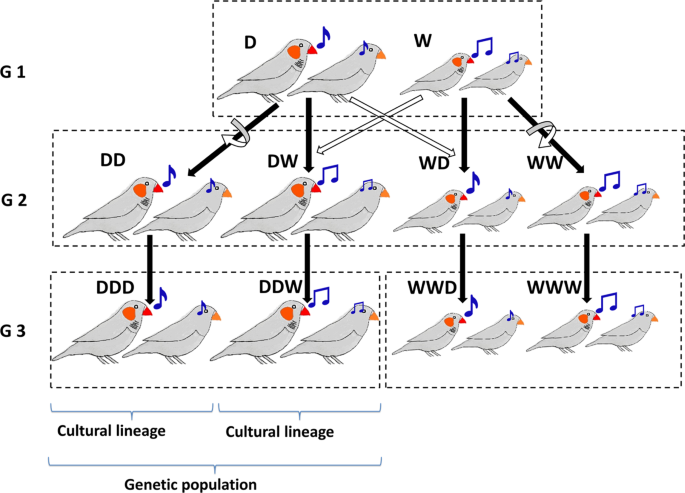人工知能がキンカチョウの鳴き声を解析 Artificial intelligence analyzes songs of zebra finches
2022-03-28 マックス・プランク研究所
・しかし、マックス・プランク鳥類学研究所の研究者たちは、人工知能の技術を用いて、4つの異なるキンカチョウの集団の歌が系統的に異なることを示すことに成功した。
・さらに、この「隠語的方言」がメスの交尾相手選びの決め手になっていることも発見した。このように、キンカチョウのメスは、オスの外見よりも文化的な特徴に注意を払うのです。
<関連情報>
- https://www.mpg.de/18482147/0328-orni-zebra-finch-males-sing-in-dialects-and-females-pay-attention-154562-x?c=2249
- https://www.nature.com/articles/s41467-022-28881-w
機械学習により、鳴き鳥の仲間選びを説明する方言を発見 Machine learning reveals cryptic dialects that explain mate choice in a songbird
Daiping Wang,Wolfgang Forstmeier,Damien R. Farine,Adriana A. Maldonado-Chaparro,Katrin Martin,Yifan Pei,Gustavo Alarcón-Nieto,James A. Klarevas-Irby,Shouwen Ma,Lucy M. Aplin &Bart Kempenaers
Published: 28 March 2022 Nature Communications volume 13, Article number: 1630 (2022)

Abstract
Culturally transmitted communication signals – such as human language or bird song – can change over time through cultural drift, and the resulting dialects may consequently enhance the separation of populations. However, the emergence of song dialects has been considered unlikely when songs are highly individual-specific, as in the zebra finch (Taeniopygia guttata). Here we show that machine learning can nevertheless distinguish the songs from multiple captive zebra finch populations with remarkable precision, and that ‘cryptic song dialects’ predict strong assortative mating in this species. We examine mating patterns across three consecutive generations using captive populations that have evolved in isolation for about 100 generations. We cross-fostered eggs within and between these populations and used an automated barcode tracking system to quantify social interactions. We find that females preferentially pair with males whose song resembles that of the females’ adolescent peers. Our study shows evidence that in zebra finches, a model species for song learning, individuals are sensitive to differences in song that have hitherto remained unnoticed by researchers.


